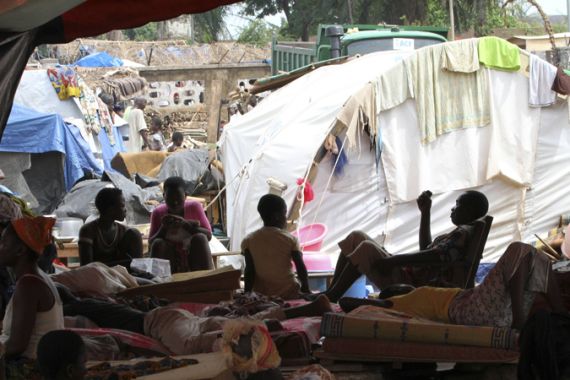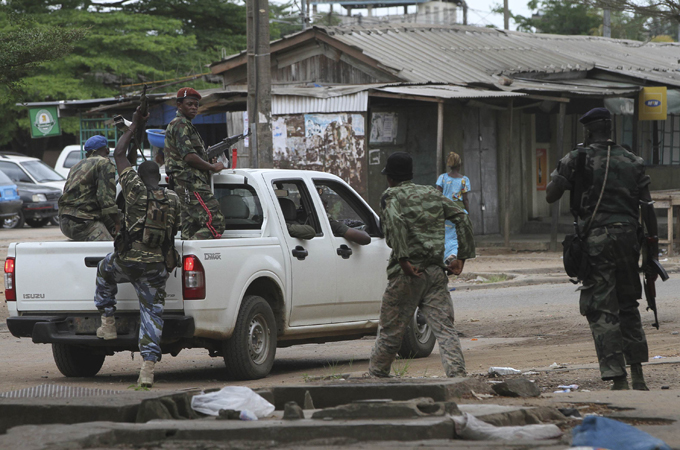ICC urged to probe Ivory Coast violence
Actions of rival groups during post-poll conflict may be investigated following President Ouattara’s request.

 |
|
Pro-Outtara soldiers patrolling after over 3,000 killed and over a million displaced by post-election violence. [Reuters] |
The International Criminal Court (ICC) has been requested by Alassane Ouattara, the president of Ivory Coast, to investigate the post-presidential election violence that rocked the African nation in recent months.
The investigation could expose widespread abuses by both groups involved in the conflict, which saw at least 3,000 people killed and more than a million displaced after Laurent Gbagbo, who lost to Ouattara, refused to cede power.
In a letter to the ICC, Ouattara said “it appears that the Ivorian justice system, at the moment, is not best placed to consider the most serious crimes committed over the recent months, and that any attempts to bring to justice those who are most responsible would risk running into all kinds of difficulties”.
The request focused on abuses reported since the disputed election was held on November 28.
‘Gbagbo crimes’
According to an Ivorian justice ministry official, separate investigations into Gbagbo’s alleged complicity in other crimes will continue.
“The fact that President Ouattara is asking the International Criminal Court to probe these crimes does not block the national justice system from doing its own investigations,” he said, on condition of anonymity. “There will be investigations in Ivory Coast on, for example, economic crimes,” he added.
While the ICC has not publicly responded to the request, an investigation would likely focus on reported violations by Gbagbo’s side as he struggled to retain power, and also on alleged excesses committed by forces loyal to Ouattara.
Gbagbo fighters have been accused by human rights groups of using heavy weapons against civilians. Ouattara forces also face allegations of widespread atrocities during their march from their northern stronghold to Abidjan, the capital city where Gbagbo lived in a fortified bunker.
The former president was captured on April 11 after heavy fighting.
Ivory Coast’s election, which occurred after a half-decade delay, was meant to heal the wounds of the country’s 2002-2003 civil war, but wounds were instead re-opened.